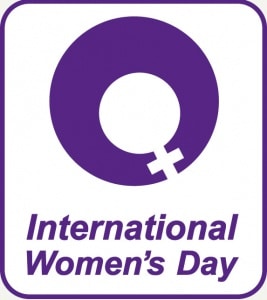
First originating in Europe over a century ago, when over one million people held rallies and demonstrations advocating for a women’s right to vote, hold public office, and to improve their workplace rights, International Women’s Day is now marked on March 8th in more than 100 countries worldwide. While the scope of International Women’s Day varies across the globe, Canada uses it as an opportunity to examine our progress towards gender equality and celebrate the contributions of women across society.

Edwards v Canada (Attorney General), [1930] AC 124
Commonly known as the Persons Case, it was brought thanks to the efforts of the “Famous Five” women’s rights pioneers: Emily Murphy, Nellie McClung, Irene Parlby, Louise McKinney and Henrietta Edwards. This case was not a traditional court case, in that it only involved the Canadian government asking the Supreme Court of Canada a single question: whether women should be interpreted as “persons” under the relevant law such that they could be allowed to serve as Canadian senators.
At the time, the highest court in Canada was known as the Judicial Committee of the Privy Council, and that court found that women were indeed “persons” and eligible to be appointed as senators. This case also played a fundamental role in changing Canadian courts’ approach to interpreting our constitutional rights, an approach which has affected countless cases in the years since.
Janzen v Platy Enterprises Ltd, [1989] 1 SCR 1252
Dianna Janzen and Tracy Govereau were sexually harassed in their workplace by a fellow employee. They filed a human rights complaint for discrimination on the basis of sex. They were initially successful in their complaint, but the Manitoba Court of Appeal found that the harassment did not constitute discrimination on the basis of sex and dismissed their complaint. The Supreme Court of Canada disagreed – finding that sexual harassment constitutes discrimination on the basis of sex. This finding has allowed for much greater recognition of the meaning and impact of sexual harassment claims in the years that followed.
R v Morgentaler, [1988] 1 SCR 30
Dr. Henry Morgentaler and others ran an abortion clinic in Ontario. They were prosecuted for performing abortions contrary to Criminal Code prohibitions on doing so. While the judges of the Supreme Court of Canada differed in their reasoning, together they came to the same conclusion: that the provisions in the Criminal Code criminalizing abortion were unconstitutional, and struck them down, in effect giving a measure of constitutional protection to a woman’s right to choose.
R v Darrach, [2000] SCC 46
While being tried for sexual assault in 1994, the accused challenged the constitutionality of certain sections in the Criminal Code which limited the use of a complainant’s past sexual history. The challenge ultimately failed, and the Supreme Court of Canada held definitively that such provisions were proper and essential to protect the privacy and dignity of a complainant, and could not be used in an attempt to imply consent or dismiss a complaint. This case laid out an important boundary as to the types of evidence admissible in sexual assault cases.
R v Ewanchuk, [1999] 1 SCR 330
The accused was tried and acquitted of a sexual assault of a young woman on the basis of his defense that her consent to the sexual activity was implied. The Alberta Court of Appeal upheld the accused’s acquittal, but in a stern and at times scathing decision, the Supreme Court of Canada overturned his acquittal, holding that there is no defense of implied consent at law. This case was notable for, in effect, establishing that “no means no” at law, a critical evolution in sexual assault trials in Canada.





